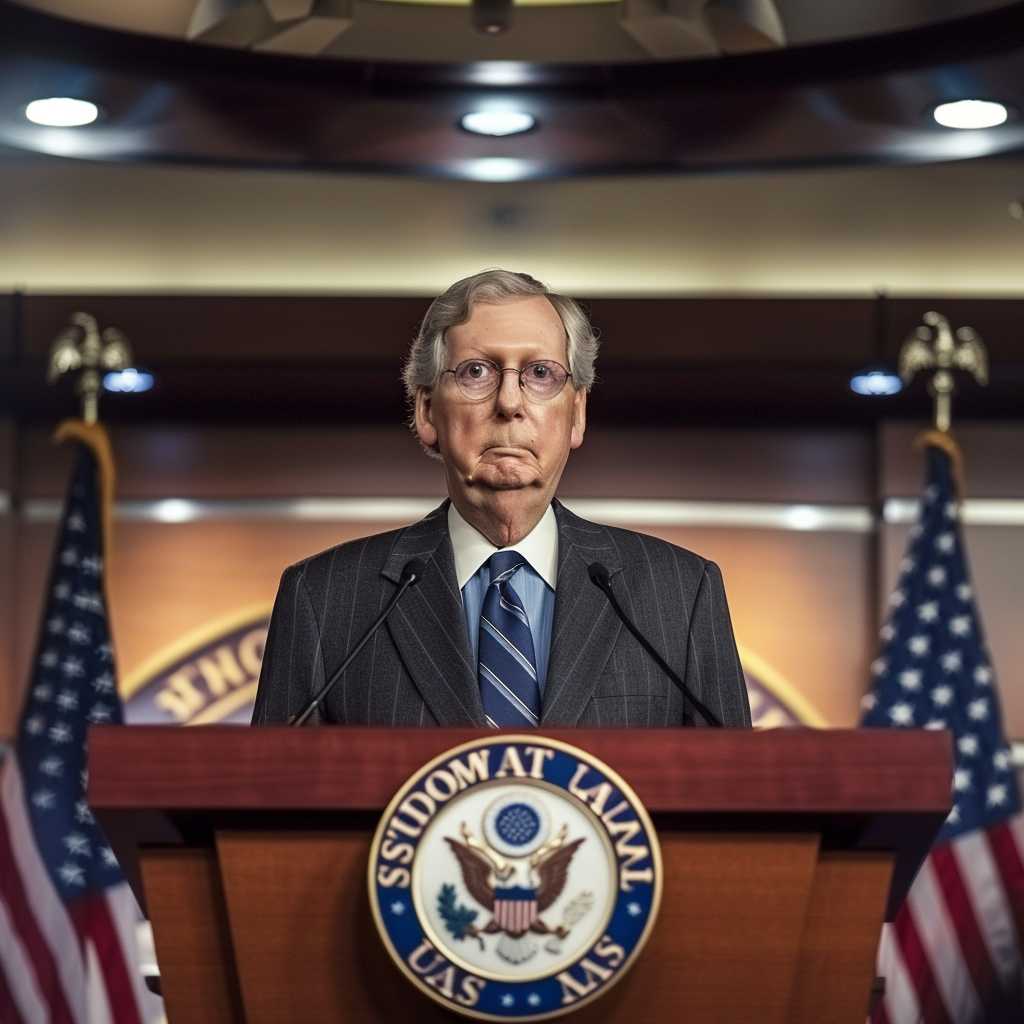The Political Landscape and Senator Mitch McConnell: A Comprehensive Overview
Mitch McConnell, a formidable figure in American politics, has been a pivotal player in the legislative process and partisan dynamics of Congress for decades. As Senate Minority Leader, McConnell wields significant influence over the shape and direction of U.S policy and debate.
Early Years and Entrance into Politics
Born on February 20, 1942 in Sheffield, Alabama, Addison Mitchell McConnell Jr. grew up in nearby Athens before his family moved to Georgia and later Kentucky. He graduated from the University of Louisville College of Arts and Sciences with honors in Political Science and went on to attend the University of Kentucky College of Law.
McConnell’s political career began as an intern working for Senator John Sherman Cooper, which ignited his passion for politics. Waystations on his path to power included serving as Deputy Assistant Attorney General under President Gerald Ford and County Judge-Executive in Jefferson County, Kentucky.
Rising Through the Ranks
In 1984, McConnell was elected to the United States Senate, where he began a rise through Republican Party ranks that has been characterized by shrewd strategy and persistence. As a legislator, McConnell is often described as reserved and disciplined, with an astute understanding of Senate rules and politics.
Though his early years did not immediately mark him as a high-profile national figure, McConnell steadily gained clout within the party. He was appointed to several influential committees, including ones relating to Appropriations and Agriculture. His focus on earmarks and local issues helped ensure his popularity among his constituents.
Strategic Leadership and Legislative Impact
As Minority Whip and later Minority Leader—a position he first assumed in 2007—McConnell’s strategizing during Democratic presidencies became a defining element of his tenure. His tactical use of filibusters and other procedural maneuvers has set him apart as an individual capable of exerting significant influence on the legislative agenda.
His detractors accuse him of prioritizing partisanship over pragmatic policy-making, particularly noting his obstruction of President Obama’s initiatives. Conversely, his supporters argue that McConnell’s actions reflect his dedication to conservative principles and responsiveness to the constituents who have repeatedly re-elected him.
During Donald Trump’s presidency, McConnell played an instrumental role in confirming numerous federal judges, including three Supreme Court justices. This has been one of his most lasting legacies, significantly shaping the judiciary’s ideological balance.
Contemporary Political Dynamics
In the aftermath of the 2020 elections, McConnell confronted new challenges as he maneuvered within a closely divided senate. His relationship with President Trump also faced strains amidst post-election debates over election integrity and the January 6 insurrection.
McConnell’s strategy in this shifting political landscape illustrates his adaptability to new circumstances while underscoring the enduring themes of maintaining unity within Republican Senate ranks and exercising leverage over the legislative process.
Notes
Image Description
A photograph depicting Senator Mitch McConnell standing at a podium with the Seal of the Senate emblazoned on it. He appears poised and serious, reflecting his longstanding role as a senior lawmaker in the American political landscape.
